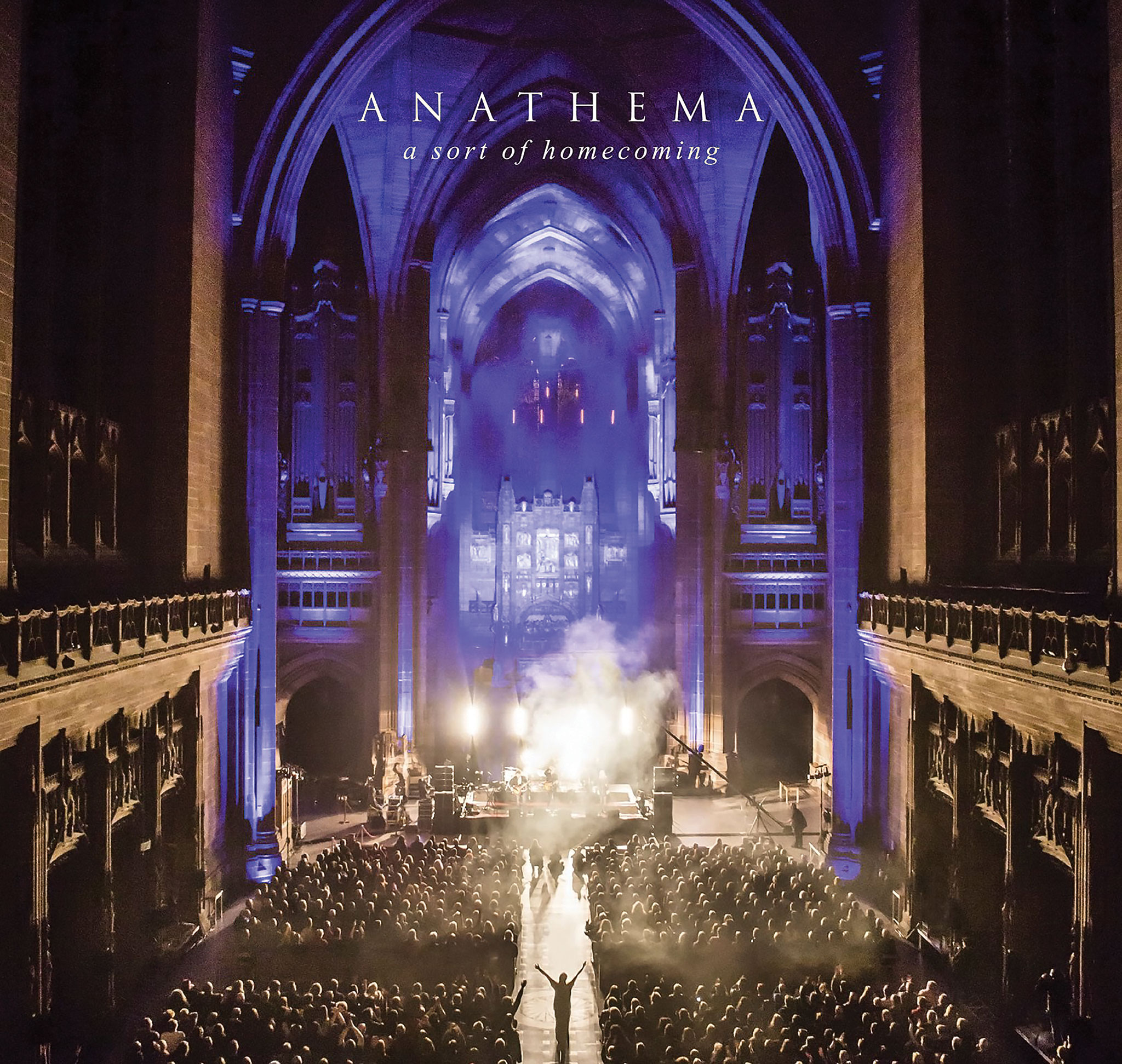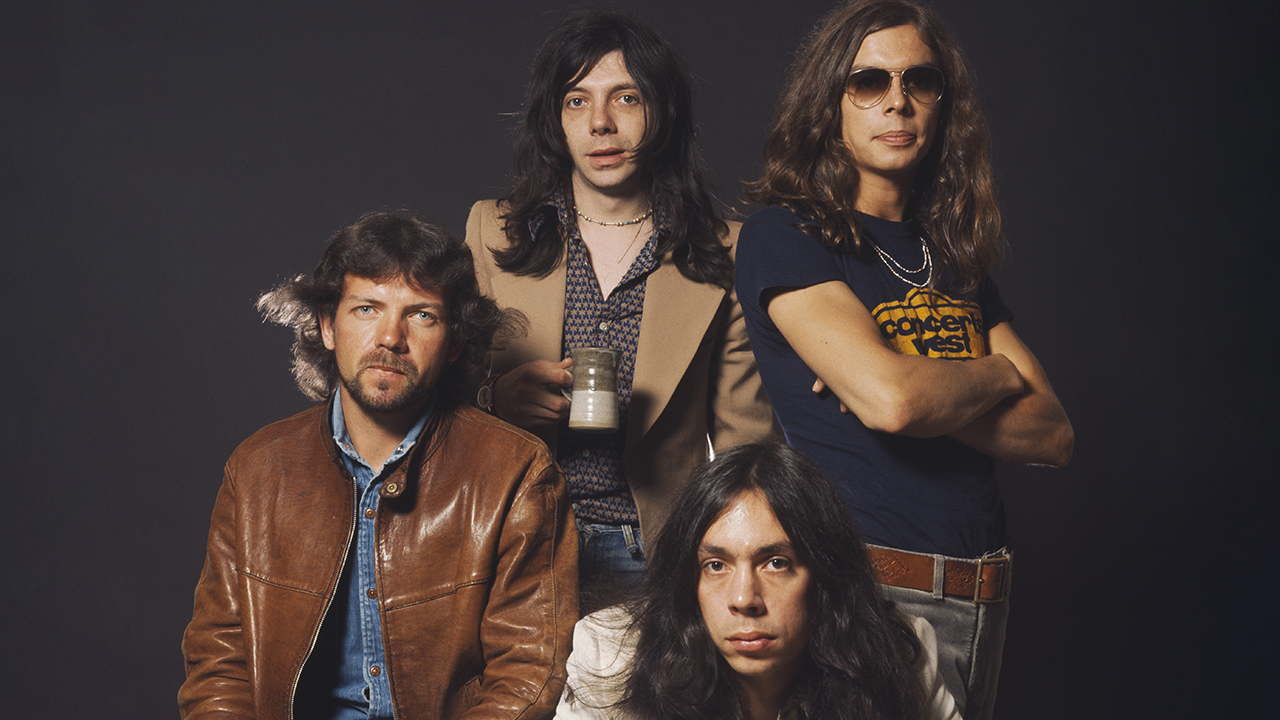Bruce Soord On Solo Dreams And Childhood Memories
With his long-awaited solo debut, Bruce Soord isn’t leaving The Pineapple Thief behind, but he is getting the chance explore the softer, dreamier side of his songwriting.
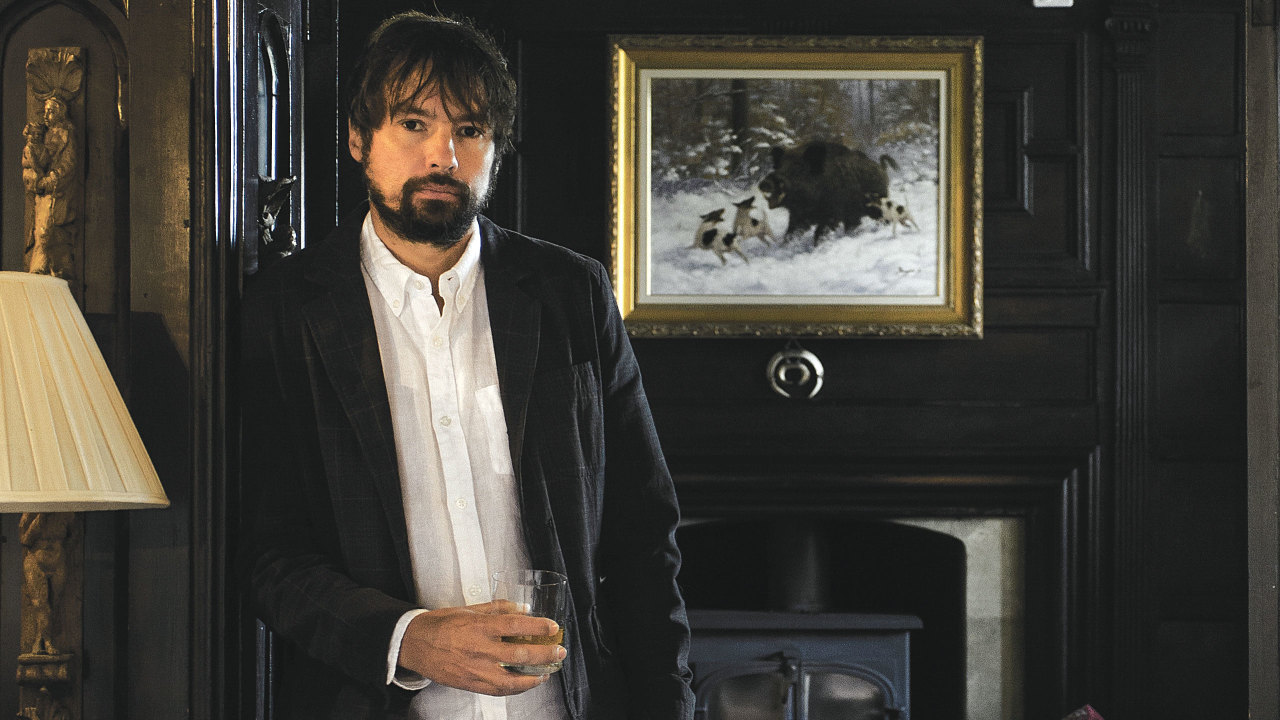
It begins on top of a hill in Yeovil, Somerset. Rewind to the mid/late 80s, and the young Bruce Soord is walking his dog up there. The West Country market town below has its share of aggro, but for the moment it’s a bucolic viewpoint. Come 2015, Soord writes about that hill in Black Smoke, the delicate, atmospheric opening track on his new album. It’s the first in a selection of nostalgic vignettes and recalled feelings of Soord’s that form the record, his solo debut, self‑explanatorily titled Bruce Soord.
“I’d go and sit up there and dream and stare over the town,” Soord remembers today, reclining in his home studio (still in Yeovil). “That song was just remembering what it felt like to do that as a kid who’s got all these amazing dreams.”
Soord’s previous album, conversely, was fuelled by late nights, low moments and Duvel beer. The album – The Pineapple Thief’s Magnolia – was a beautiful, emotionally charged piece laced with heartache, as well as uplifting layers. Certain things have changed since then. Soord’s stack of mixing/production credits has shot up, which means he can now count Opeth, Anathema and TesseracT among his clients. As a result, he’s been able to quit his office job. He’s even entered the ranks of the lean and virtuous by joining a gym…
It’s so funny. On social media, you say you’re doing a solo record and people say: ‘Oh my God this is the end of The Pineapple Thief! He’s doing a Steven Wilson!’ So I had to say: ‘No, it’s definitely not dead.’
“Yeah, very stereotypically,” he admits, sheepishly. “I do these classes, they call it GRIT. You do things like lifting up weights, but with this trainer in front of you screaming: ‘Come on! One more!’” he laughs. “Still, it’s keeping the middle-aged spread at bay. I don’t know why I basically pay to feel like shit, but afterwards it’s nice.”
As a result, home studio life has become more balanced. Regular hours and daylight, absent previously, have fed into his work.
“This album was more of a morning record, if anything,” he tells us. “It wasn’t like before where I’d come home from work, feed the kids, then go into my studio, have a beer, try to cram in as much as I could into the evening. It had an impact on the people around me, as well as me. This time I could do it during the day, finish at six o’clock and feel healthier. Maybe that’s come out in the music a bit.”
Sign up below to get the latest from Prog, plus exclusive special offers, direct to your inbox!
Seemingly it has. Bruce Soord initially stemmed from plans for a new Wisdom Of Crowds record (his project with Katatonia’s Jonas Renkse). Said plans were postponed due to Renkse’s Katatonia commitments, so Soord jumped at the chance to fill the slot on record label Kscope’s release schedule.
The finished product captures a sense of light and space not seen in Soord’s work with The Pineapple Thief. Similarly to Magnolia, it streamlines Soord’s progressive inklings into pop-sized pieces. It’s also softer and more acoustically rooted than anything he’s done before, but driven by the inventiveness and melodic ear that finessed his previous music. Plus there’s a host of slick electronics and minimalist beats, employed to traditional and modern effect. Not that it was easy, suddenly having his own name so squarely on the line.
“I think I underestimated how weird it would be because I already do all the songwriting for The Pineapple Thief,” he says. “I had people saying, ‘Why do a solo record?’ Over the years I’ve always wanted to do a really soft, personal record, different to what I could do with TPT. And I thought I could just sit down and do it, because I just thought, ‘I’m the world’s most amazing songwriter and this’ll be really easy! It definitely won’t sound like The Pineapple Thief!’”
What actually happened, at first, was that he wrote songs that did sound like The Pineapple Thief, followed by an awkward meeting with Kscope in June. Anxious to meet their targets for a clear Bruce Soord solo oeuvre, he returned home, curled up on his studio sofa and panicked.
“I had a bit of an early crisis and thought, ‘I can’t do this, oh God, what am I going to do?’” he remembers, “because I basically told Kscope I’d finish it! But I think that little shock, that little curl-up on the studio sofa, was exactly what I needed, because I basically just took my Pineapple head off and it all came together. I just needed that kick up the butt.”
Butt duly kicked, he set about making Bruce Soord the immersive retrospective it now is. Where TPT albums largely grew from specific events (such as the loss of a child in Little Man), this takes more of a bird’s-eye view of his past. Part love-letter to his native Yeovil, part epitaph for its past (now lost) treasures, it paints a large picture from happy memories, as well as bittersweet ones, all framed in the naturalistic vibe of the surrounding countryside and nearby Jurassic Coast.
“When I was a kid it was so vibrant,” Soord remembers. “There were so many bands – everyone was in a band. If you weren’t in a band, you knew someone who was. There were so many venues, makeshift venues. Our snooker club had a room out the back – we’d hire a really nice PA and it would be packed out; people would be queueing up the road to see whatever band was playing.”
With this record, I do feel I’ve found my sort of sound for my solo persona, so for the next record I could take it forward.
Sadly, however, this West Country haven felt the darker side of drugs. “In the early days there was a lot of jingle-jangle pop, with really fast, clean guitars and two-minute songs,” he says. “And out of that came a lot of grungy bands. There was a great band called Elliot Green who had real interest from Island Records – they paid for them to go up to a studio to record a demo. But because they were hooked on heroin, they went to the studio in London and drove all the way back to Yeovil to score, while this engineer who Island had paid was twiddling his thumbs, waiting for them to do the record. So they totally blew it, which was such a shame because they were so talented.”
When everyone else was out getting hammered on Friday nights, Soord and his friends would hire a four-track and write songs. “I used to enjoy going out and getting out of my face, but also me and my mates were real film nerds, and there were so many shows… So it’s not all happy, shiny memories, but it was still vibrant. And I just don’t see that any more. I don’t see the bands playing, I don’t see kids queueing up to go to gigs.”
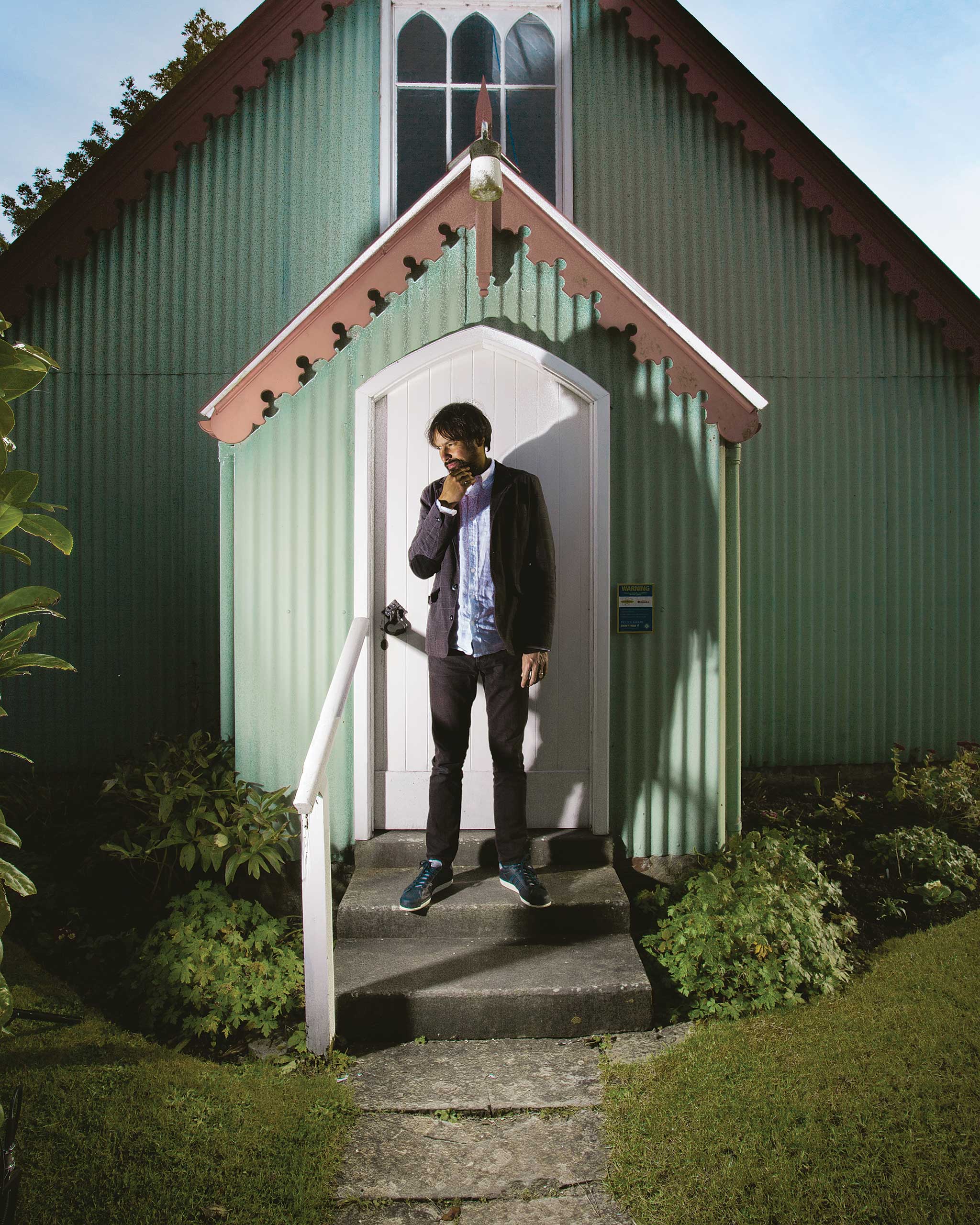
The aforementioned film fanhood has traversed into the adult Bruce, with cinematic qualities filtering into the new record. Tracks like Black Smoke and Field Day could have soundtracked a stylish, coming-of-age indie film. One track, Willow Tree, calls to mind an actual willow tree given to Soord by his wife as a nine-year wedding anniversary gift. “It was in the pot and I kept thinking, ‘I’ve gotta take this and plant it,’” Soord remembers. “Finally I did and the thing died! So that’s what I wrote it about, when my wife and I met, how we got married, how excited we were, and as we grow older, life generally gets more complicated, a little bit harder.”
Soord was 21 when he first got together with his wife. As he sings in Willow Tree, ‘It’s a long way to come to regret.’
“My marriage has had challenges like everybody else,” he says. “I think I was trying to say it’s an awful lot to go through with someone to say: ‘Sod that, I’ve had enough.’ The line is basically saying: ‘We’ve been through too much together to regret all this.’”
One day, in a poetic twist, they went into the garden to find the willow tree had new shoots growing.
Furthering the ‘solo-ness’ of this solo record, Soord plays all of the instruments, save a few guitar lines from Godsticks man Darran Charles. Well, we say ‘all instruments’ – we’re talking drum machines and Pro Tools, as well as more organic elements.
“I did toy with the idea of making up credits for a brass section and things like that because I didn’t want to turn people off,” Soord admits. “People will realise because it just says ‘all instruments played by Bruce Soord’. But it was created with the help of modern technology. It was just so nice to be able to go into my studio and do it, because over the years I’ve built up a big library of sounds. So any sound I imagine, there’s a way to make it happen.”
Full-blown progressive instrumentals aren’t something he’s shied away from in the past. Magnolia, for instance, featured luxurious strings, though these consumed a lot of money. Did he want more control this time?
“With Magnolia I was happy to let [composer] Andrew Skeet do his thing with the string arrangements, because he’s so good at it. With this album I felt it was alright to just do everything – that was the whole point of doing a solo record.”
Interestingly, he says the vocal side proved the most testing. Now long-known for his striking, celestial pipes – mellowed and airier on this record, compared with angstier edges on previous TPT tracks – it’s curious to think he became a singer out of necessity.
“I started as a guitarist and songwriter,” he says. “What I’ve learnt with this record, which is very stripped-back and vocal-focused… I knew I didn’t have anywhere to hide, and I knew what I wanted it to sound like, so I did push myself vocally. I think I can do a lot more going forward with that.”
Indeed, while we’re looking forward, we wonder how the solo experience now sits with him in hindsight. Would he go through the whole process again?
“I would,” he says, slowly, before adding more confidently: “And I’d probably do it in the same conditions as well. But I’d have to give it some thought, because I couldn’t do the same record again. I’ve done a set of ‘this is about me’ songs, so I’d have to think about where I’d take a second one… But with this record, I do feel I’ve found my sort of sound for my solo persona, so for the next record I could take it forward.”
He pauses. “That is if anyone buys this one. If no one buys it there won’t be another one.”
Whatever happens, he’s not about to quit The Pineapple Thief, contrary to internet-based thought. “It’s so funny. On social media, you say you’re doing a solo record and people say: ‘Oh my God This is the end of The Pineapple Thief! He’s doing a Steven Wilson!’” he laughs. “So I had to say: ‘No, it’s definitely not dead.’ I couldn’t imagine not doing The Pineapple Thief. In fact, that’s what I’ve got to do now – get my Pineapple head back on and starting writing for that.”
Fear not, then – the Pineapple lives…
Bruce Soord is out November 27 on Kscope. See www.kscopemusic.com/artists/bruce-soord.
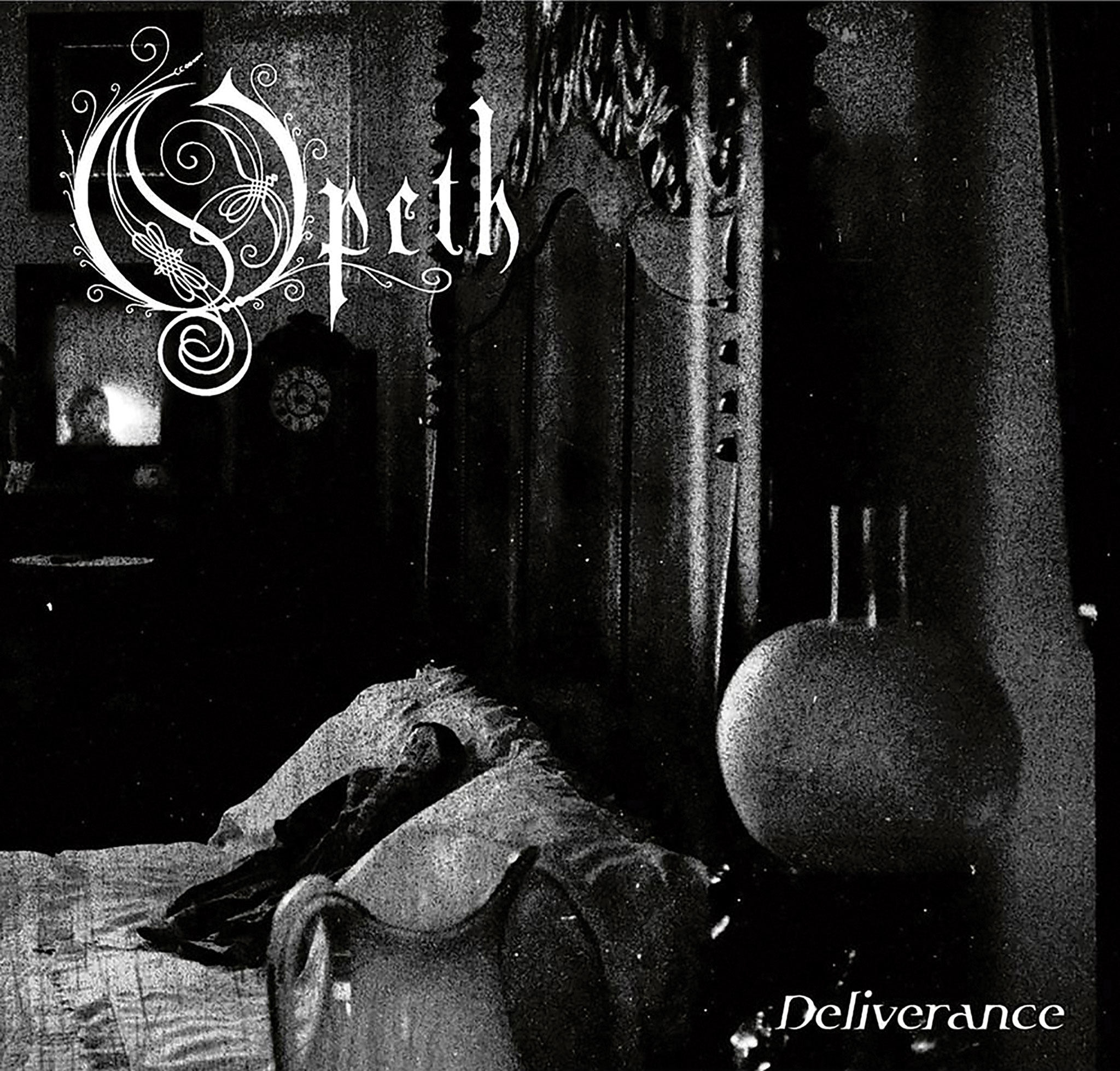
VARIATIONS ON A DREAM
Bruce Soord on mixing with prog heavyweights and rising stars.
“I got friendly with Jonas [Renkse] and my wife got friendly with Jonas’ wife and we ended up going over to Stockholm just to see them,” Bruce Soord says. “And then because of the Stockholm music scene, Jonas and Mike [Åkerfeldt, Opeth] had sort of known each other since they were kids. We went out on the town and Mike turned up and we had a really good time.”
When Åkerfeldt’s regular mixer, Steven Wilson, was busy with touring commitments, an opportunity arose for Soord to step in to work on the reissue of Opeth’s 2002 release Deliverance.
“Steven sort of endorsed me to do the mix and luckily Mike really liked it. So it was good, but I was quite nervous. I’ve always primarily mixed for myself, and that’s easy because you know when you like it straight away. Whereas doing a mix for someone else, you spend a lot of time getting what you think is a good mix, sending it off and thinking, ‘Shit are they gonna like it?!’”

Besides doing 5.1 surround mixes for the new TesseracT album Polaris, and Anathema’s A Sort Of Homecoming, Soord has just finished producing Karachi prog rockers The D/A Method. “I’m mixing and producing, even sang backing vocals, things like that. It’s not just mixing. If they want me to play something, you’ve got to do it to make it as good as it can be. That’s my philosophy.
“It’s really interesting to work with a band from Karachi too, hear about their history. They stayed a couple of evenings here and played all their traditional Pakistani music, stuff that I didn’t have a clue about, that millions of people in Pakistan worship. So yeah, it was a real eye-opener to a different world.”
